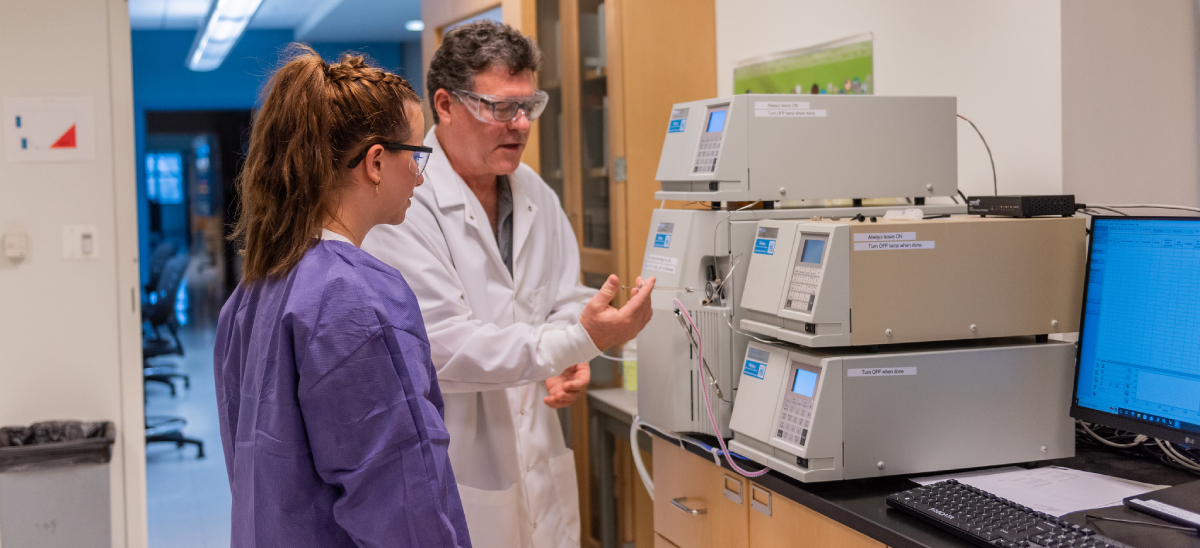Biochemisty Program Details
The Bachelor of Science in Biochemistry is a multidisciplinary program combining rigorous foundations in biology, chemistry, and physics. This integrated program emphasizes real-life experiences; laboratory experiences and an internship research project with a faculty mentor, or participation in student teaching provide you with state-of-the-art lab skills and experience in a research, allied health, or teaching environment.
A core set of courses introduces the basic concepts of life science and the fundamentals of biological processes and the diversity of organisms. A subsequent series of courses provides a broad biological base for advanced work in specific concentration areas, including Biological Sciences, Health Science, Pre-Dentistry, and Pre-Medicine.
You’ll also participate in a Senior Seminar course, in which you’ll write a short thesis based on either laboratory-based or library-based research.
Employment Outlook
Biochemistry graduates have many career offerings, from health-related fields to the corporate sector, government, and education.
Biochemsitry majors will have the foundational knowledge to go on the medical school or to go into health-related fields, or to explore the growing pharmaceutical and biotech fields. Biochemists can also secure employment at government facilities such as the FDA, CDC, EPA and Dept of Agriculture.
Biochemistry majors interested in secondary education and becoming certified to teach science at the high school level can choose to be certified in either biology or chemistry.* These graduates can also seek certification in the alternate field, as the biochemistry degree will provide a knowledge base for both biology and chemistry, making these graduates highly competitive in secondary education.
*These secondary education programs are not accepting incoming students as new majors.
Biochemistry majors also will be prepared to pursue an advanced degree in biochemistry or a related field.
Program Highlights:
- Integrated program builds on the strength and synergy of Cabrini's well-established Biology and Chemistry programs
- Research-based program that emphasizes real-life experience
- Near limitless internship and
Skills Learned
- Understand foundational biological, chemical, and physical science concepts, as emphasized in the core science course requirements
- Apply the scientific method and possess problem-solving skills necessary to design, conduct, and troubleshoot experiments and to test a hypothesis
- Read, understand, and critically review scientific papers and interpret and analyze data presented in various forms (e.g., graphs, tables, narrative) using critical-thinking, analytical, and quantitative skills
- Present scientific ideas to multiple audiences using the accepted format of the discipline using written and oral communication skills
- Gain entry into the science workplace and/or graduate/professional schools utilizing a basic proficiency in computational skills, lab techniques, and use of technology
